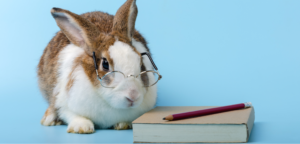
Improve Student Research with Research Rabbit
Faculty lament that students often use Google searches rather than academic sources for research. But now there are AI tools that both restrict their searches to academic publications and manage the results to greatly speed up the writing process. Perhaps the most powerful of these





